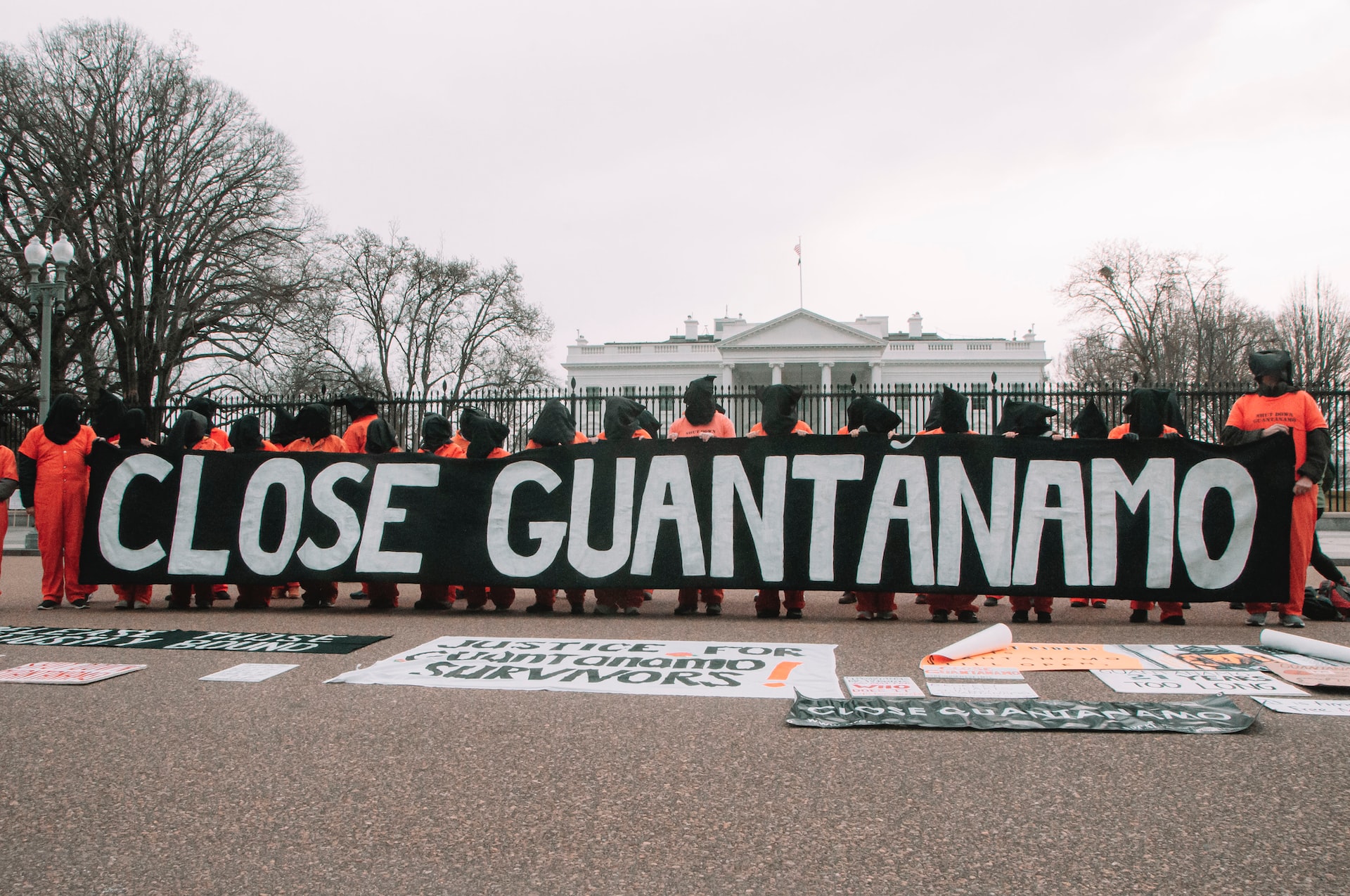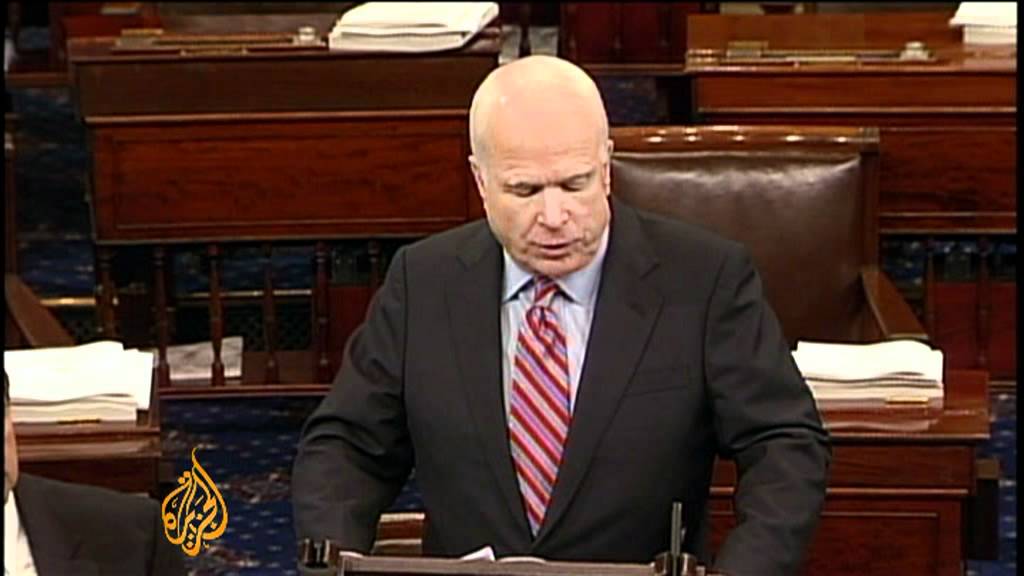Indefinite Detention In America - What You Need To Know
The U.S. has long been known to pride itself as a nation that upholds the rule of law. Still, when it comes to issues surrounding indefinite detention, Uncle Sam seems to falter on this one. The continued operation of the controversial Guantanamo Bay alone only adds to its condemnation.
Author:Darren McphersonReviewer:Camilo WoodMar 13, 2023200.7K Shares2.7M Views

The use of indefinite detentionin the United States raises serious concerns about civil liberties, due process, and the rule of law.
Detaining individuals without trial or charge undermines the basic principles of the U.S. legal system, including the presumption of innocence and the right to a fair trial.
It also creates the potential for abuse and mistreatment, as well as the possibility of detaining innocent individuals.
Learn more how the U.S. deals with indefinite detention.

The Right to be Free from Arbitrary Indefinite Detention
Indefinite Detention Meaning
Indefinite detention refers to the practice of detaining an individual for an unspecified period of time without a trial, conviction, or sentence.
It means that the person is being held in detention without a clear end date or legal justification.
Indefinite detention can occur in a variety of contexts, including the following:
a. immigration detention
Immigration detention refers to the practice of detaining individuals who are suspected or confirmed to be in violation of immigration laws.
This typically involves detaining individuals who:
- have entered a country without authorization
- overstayed their visas
- are deemed to be a threat to national security or public safety
b. national security detention
National security detention refers to the practice of detaining individuals by a government or law enforcement agency on the grounds of national security concerns.
This type of detention is often used to prevent potential threats to the safety and security of a country, such as:
- terrorism
- espionage
- other forms of subversive activity (e.g., cyberattacks, insurrection, sabotage)
c. detention related to criminal investigations
Detention in the context of criminal investigations refers to the process of holding an individual in custody or confinement for a period of time while law enforcement agencies investigate allegations of criminal activity against them.
In some cases, indefinite detention may be used as a means of holding individuals who are considered a threat to national security or public safety, without being charged with a specific crime.

Indefinite Detention USA
Indefinite detention in the United States has been a controversial issue for years.
The United States has a long history of detaining individuals without trial or charge, especially in the context of national security.
One of the most notable examples is the detention of Japanese Americans during World War II.
In the aftermath of the 9/11 terrorist attacks, the U.S. government expanded its use of indefinite detention under the guise of national security. The government argued that it was necessary to detain individuals without trial or charge in order to prevent future terrorist attacks.
Some of the people in the U.S. who are under indefinite detention are placed at Guantanamo Bay in Cuba.
It’s the most well-known example of detention center, where the U.S. government has been holding individuals without trial or charge since 2002.
The Guantanamo Bay detention center has been a lightning rod for criticism from civil liberties advocates and human rights organizations.
The facility is located outside of the United States, which has allowed the government to argue that the detainees are not entitled to the same legal protections as U.S. citizens.
This has led to allegations of torture, abuse, and violation of international law.
The U.S. government has also faced criticism for its lack of transparency in its handling of the detainees at Guantanamo Bay.

Another notable case of indefinite detention in the U.S. is that of prisoners held in the Communication Management Units (CMUs). They are specialized prison units designed to isolate and monitor certain prisoners.
The exact number of prisoners held in CMUs is not publicly known, but some estimates suggest that there may be hundreds of individuals held in these units.
Many of the prisoners held in CMUs are Muslim, and some have alleged that they were targeted for their religious beliefs.
In recent years, there have been efforts to address the issue of indefinite detention in the United States.
On January 2, 2013, President Barack Obama signed the 2013 National Defense Authorization Act (NDAA).
It’s an annual piece of legislation that outlines the budget and expenditures for the U.S. Department of Defense, as well as establishes policies related to national defense.
The executive director of the New York-based American Civil Liberties Union (ACLU; est. 1920), Anthony Romero, criticized the said signing.
“„His [Obama’s] signature means indefinite detention without charge or trial, as well as the illegal military commissions, will be extended.- Anthony Romero, ACLU Executive Director
In 2016, President Obama signed an executive order mandating periodic reviews of the status of individuals held at Guantanamo Bay. Again, the order did not resolve the underlying legal issues surrounding it.
Thus, in the U.S., indefinite detention remains to be a complex issue with serious implications for civil liberties, due process, and the rule of law.
While it may be necessary to detain individuals in the context of national security, it is essential that this power is used judiciously and with respect for basic legal principles.

US Senate passes 'indefinite detention' bill
Indefinite Detention Bill
The U.S. 5th Amendment contains several provisions related to the rights of individuals in the criminal justice system, but it does not specifically address the issue of indefinite detention.
However, the 5th Amendment does include the Due Process Clause, which requires that the government provide individuals with certain procedural protections.
This includes the following rights:
- right to a fair and impartial trial
- right to be informed of the charges against them
- right to confront witnesses
- right to counsel
In 2001, the U.S. government passed the Authorization for Use of Military Force (AUMF), which authorized the use of military force against those responsible for the 9/11 attacks and any associated forces.
This law has been used to justify the indefinite detention of individuals who are suspected of being associated with terrorist organizations.
The U.S. government has also used indefinite detention in other contexts.
In 2011, the National Defense Authorization Act (NDAA) was passed, which contained a provision allowing for the indefinite detention of individuals suspected of terrorism.
However, this provision has also been the subject of controversy and legal challenges.
People Ask
How Long Can A Person Be Detained Without Trial?
The length of time a person can be detained without trial depends on various factors, such as the:
- nature of the charges against them
- complexity of the case
- jurisdiction in which they are being held
In general, however, most states in America have laws that require a person to be brought before a judge within a certain period after their arrest.
This period is typically within 48 to 72 hours, although it may be longer in some circumstances, such as during weekends or holidays.
Who Is Currently At Guantanamo Bay?
Guantanamo Bay currently holds detainees who were captured in the context of the War on Terror following the 9/11 attacks.
As of September 2021, there were reportedly 39 detainees still being held at Guantanamo Bay.
How Much Does Guantanamo Bay Cost Per Year?
According to a report by the U.S. Government Accountability Office (GAO) published in 2021, the annual cost of operating the facility in fiscal year 2020 was approximately $174 million.
Conclusion
Indefinite detention is a controversial practice particularly in the U.S. because it raises significant legal and ethical concerns about civil liberties, human rights, and due process.
Critics argue that it violates the fundamental principles of democracy and the rule of law, and can lead to abuses of power by authorities.
The U.S. government must not rely on indefinite detention and instead find a way to balance national security concerns with the protection of individual rights and liberties.

Darren Mcpherson
Author
Darren Mcpherson brings over 9 years of experience in politics, business, investing, and banking to his writing. He holds degrees in Economics from Harvard University and Political Science from Stanford University, with certifications in Financial Management.
Renowned for his insightful analyses and strategic awareness, Darren has contributed to reputable publications and served in advisory roles for influential entities.
Outside the boardroom, Darren enjoys playing chess, collecting rare books, attending technology conferences, and mentoring young professionals.
His dedication to excellence and understanding of global finance and governance make him a trusted and authoritative voice in his field.

Camilo Wood
Reviewer
Camilo Wood has over two decades of experience as a writer and journalist, specializing in finance and economics. With a degree in Economics and a background in financial research and analysis, Camilo brings a wealth of knowledge and expertise to his writing.
Throughout his career, Camilo has contributed to numerous publications, covering a wide range of topics such as global economic trends, investment strategies, and market analysis. His articles are recognized for their insightful analysis and clear explanations, making complex financial concepts accessible to readers.
Camilo's experience includes working in roles related to financial reporting, analysis, and commentary, allowing him to provide readers with accurate and trustworthy information. His dedication to journalistic integrity and commitment to delivering high-quality content make him a trusted voice in the fields of finance and journalism.
Latest Articles
Popular Articles
